
Tom Siegfried is a contributing correspondent. He was editor in chief of Science News from 2007 to 2012, and he was the managing editor from 2014 to 2017. He is the author of the blog Context. In addition to Science News, his work has appeared in Science, Nature, Astronomy, New Scientist and Smithsonian. Previously he was the science editor of The Dallas Morning News. He is the author of four books: The Bit and the Pendulum (Wiley, 2000); Strange Matters (National Academy of Sciences’ Joseph Henry Press, 2002); A Beautiful Math (2006, Joseph Henry Press); and The Number of the Heavens (Harvard University Press, 2019). Tom was born in Lakewood, Ohio, and grew up in nearby Avon. He earned an undergraduate degree from Texas Christian University with majors in journalism, chemistry and history, and has a master of arts with a major in journalism and a minor in physics from the University of Texas at Austin. His awards include the American Geophysical Union's Robert C. Cowen Award for Sustained Achievement in Science Journalism, the Science-in Society award from the National Association of Science Writers, the American Association for the Advancement of Science-Westinghouse Award, the American Chemical Society’s James T. Grady-James H. Stack Award for Interpreting Chemistry for the Public, and the American Institute of Physics Science Communication Award.

Trustworthy journalism comes at a price.
Scientists and journalists share a core belief in questioning, observing and verifying to reach the truth. Science News reports on crucial research and discovery across science disciplines. We need your financial support to make it happen – every contribution makes a difference.
All Stories by Tom Siegfried
-
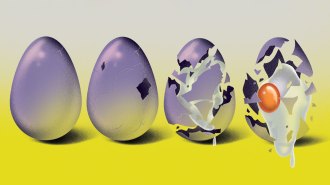 Physics
PhysicsThe second law of thermodynamics underlies nearly everything. But is it inviolable?
Two centuries on, scientists are still seeking a proof of the Second Law and why heat always flows from hot to cold.
-
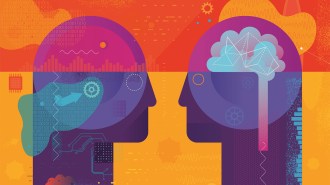 Artificial Intelligence
Artificial IntelligenceWhy large language models aren’t headed toward humanlike understanding
Unlike people, today's generative AI isn’t good at learning concepts that it can apply to new situations.
-
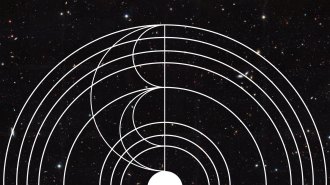 Math
MathHow Pythagoras turned math into a tool for understanding reality
Reality was made of numbers, Pythagoras said, and he employed numbers to explain the “harmony of the heavens.”
-
 Science & Society
Science & SocietyHere are the Top 10 threats to the survival of civilization
These aren’t just movie scenarios. From aliens and asteroids to pandemics, war and climate change, civilization as we know it is at risk.
-
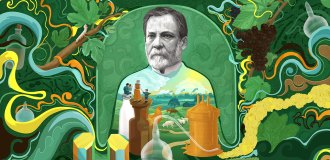 Health & Medicine
Health & MedicineLouis Pasteur’s devotion to truth transformed what we know about health and disease
Two centuries after his birth, Louis Pasteur's work on pasteurization, germ theory and vaccines is as relevant as ever.
-
 Cosmology
CosmologyA century ago, Alexander Friedmann envisioned the universe’s expansion
Alexander Friedmann saw that Einstein’s equations predicted multiple cosmic scenarios, including a Big Bang.
-
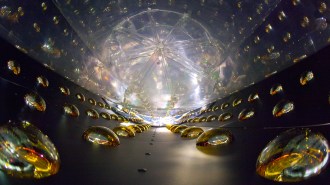 Science & Society
Science & SocietyHere are the Top 10 times scientific imagination failed
Some scientists of the past couldn’t imagine that atoms or gravity waves could one day be studied – or nuclear energy harnessed.
-
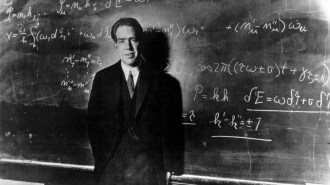 Quantum Physics
Quantum Physics‘From Data to Quanta’ defends Niels Bohr’s view of quantum mechanics
In his new book, philosopher Slobodan Perović corrects misconceptions about physicist Niels Bohr’s work.
-
 Science & Society
Science & SocietyHere are the Top 10 science anniversaries of 2022
Insulin to treat diabetes, the slide rule and the birthdays of Gregor Mendel and Louis Pasteur make the list.
-
 Quantum Physics
Quantum PhysicsA century of quantum mechanics questions the fundamental nature of reality
A century after the quantum revolution, a lot of uncertainty remains.
-
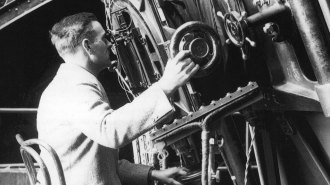 Science & Society
Science & SocietyThe Top 10 scientific surprises of Science News’ first 100 years
In the 100 years since Science News started reporting on it, science has offered up plenty of unexpected discoveries.
-
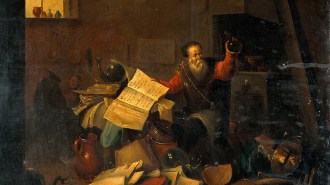 Science & Society
Science & Society‘On the Fringe’ explores the thin line between science and pseudoscience
In his latest book, historian Michael Gordin surveys astrology, eugenics and other fringe movements to show how challenging it is to define pseudoscience.